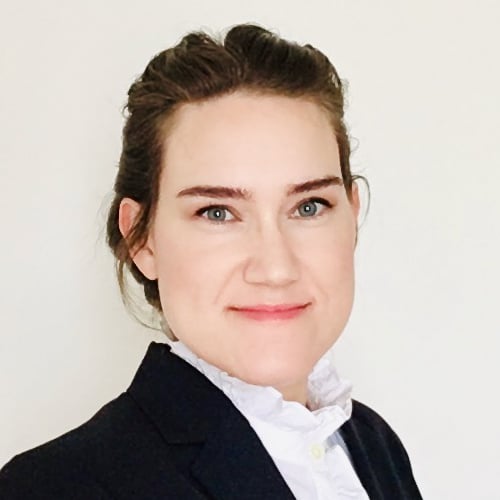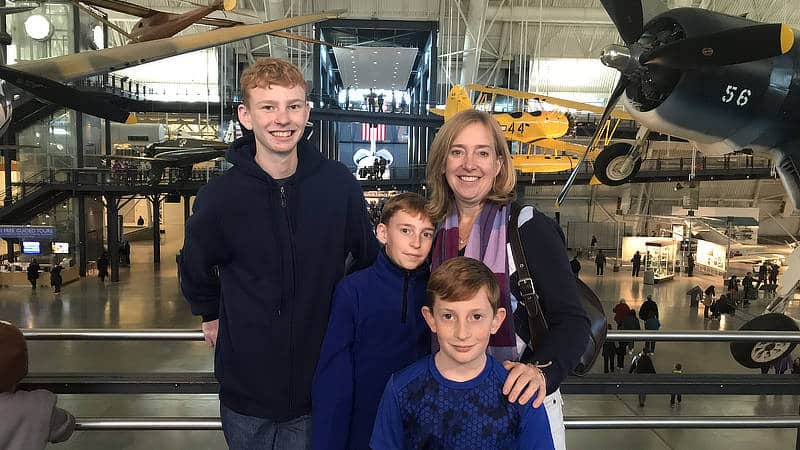Former Scientist Jennifer Merrill Takes on a New Role as the Stroud Center’s Director of Marketing and Communications

Without the flashy entertainment of the Big Apple, or even an Atari to glue her to the family TV, Jennifer Merrill instead found excitement in the hiking trails, waterfalls, and creeks in and around her small town while growing up in the Hudson Valley. It was the 70s — before TikTok and Minecraft — and her parents took a “free-range” approach to childrearing.
Merrill recalls, “My parents discouraged time inside if it was nice outside, and we camped a lot,” describing a childhood for which she expresses gratitude. “Time spent in the woods or near the water has always been healing for me.”
In high school, she participated in environmental and social justice movements, even donating money earned from working an after-school job to The Nature Conservancy.

To advance some of her environmental causes, she wanted to understand the science behind them, so she chose to major in environmental and forest biology while earning her bachelor’s at the State University of New York College of Environmental Science and Forestry in Syracuse. She then entered a master’s program at the University of Maryland, focusing on tidal freshwater marshes.
“Fascinating systems,” Merrill calls them. “They lack the saltwater that constrains diversity, but they are influenced by tides, making them super complex in terms of hydrology.”
Afterward, she intended to go to law school to pursue a career in environmental law and policy.
However, just as she was finishing her master’s, one of her committee members posed a question that the researcher in her wanted to answer: Can freshwater marshes significantly reduce nitrogen levels in surrounding ecosystems and in turn help maintain water quality?
Law school could wait, she decided. She promptly rolled her master’s into a doctoral program at the University of Maryland and got to work answering the big question. The research led to a fellowship on Capitol Hill with the National Oceanic and Atmospheric Administration.
Once there, Merrill says, “I saw how sincerely elected officials and their staff wanted to understand and do the right thing. Ultimately, the decisions that happen there are political decisions, but you still have to make sure that science is in the room.”
The experience opened her eyes to the need for effective communications about science.
Merrill continued walking the line between research and the application of science with stints at the National Research Council and the University of Delaware. Then another interest beckoned.
“I was curious about the business world, and I recognized the role large and small companies can play in promoting the greater good. As interest in corporate sustainability and the triple bottom line — social, environmental, and economic benefits — becomes more mainstream, it’s important to make the connections between science, business, and society more apparent. This is where I think Stroud Water Research Center can offer a strong, independent voice.”
While working full time at the university, first in the College of Earth, Ocean, and Environment, and then at Osher Lifelong Learning Institute, she learned how to view the world from a business perspective by completing a Master of Business Administration.
In March, Merrill began a new role as the director of marketing and communications at Stroud Water Research Center. While remaining focused on science, she says, “My interest has shifted to highlighting scientific findings or consensus for broader applications, such as policy or resource management.”
Merrill says, “In my short time here, it’s apparent that the work is not only world-class but wide-ranging with impacts on the local scale through the landowners, ecosystem monitoring, and educational programming. Partners around the world recognize the strength of our research, education, and watershed restoration teams and seek them out for new projects, carrying the work to audiences globally. The Stroud Center is consequential. Outcomes improve how aquatic systems are understood and managed.”
Outside of work, Merrill enjoys spending time with her three sons, often outdoors, and singing 80s hits in the car with one of them. “I won’t disclose which one that is!” she says, finally adding, “Knowing that my kids appreciate the environment around them much like I do gives me hope for our future.”





